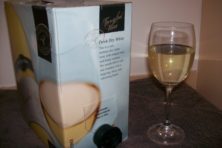Wine:30
- Share
- Tweet
- Pin
- Share
Greener Wines
When it comes to organic and sustainable growing practices, wineries and vineyards throughout the world are embracing some new, (and some very old), methods to produce some of the finest wines available today. With thousands and thousands of acres under cultivation and prices for prime growing areas soaring, the wine industry has recognized the need to take stewardship of their land seriously, especially in regard to water conservation and pesticide usage. As a result, more and more wineries are marketing and labeling their products as “Certified Organic,” “Biodynamic,” and “Sustainable.”
To help you sort this all out, following is a basic overview of the different practices currently being employed by winemakers and vineyard managers today:
Certified Organic
Most wines cannot be labeled “Certified Organic” due to the USDA requirement limiting sulfites to 10 parts per million (the typical amount of sulfites that naturally occur in most grapes). However, you will see many wines labels referencing that “Certified Organic Grapes” have been used to produce the wine.
Farming Requirements for Organic certification from the USDA include the use of crop rotation, green manure, compost, biological pest control, and mechanical cultivation to maintain soil productivity and control pests in their farming practices. Additional requirements strictly limit the use of synthetic fertilizers and synthetic pesticides, plant growth regulators, livestock feed additives, and genetically modified organisms. Farms are USDA inspected and certified annually and must keep detailed records.
Biodynamic (Demeter Certified)
Biodynamic is a method of organic farming that has its basis in a spiritual world-view (anthroposophy, first propounded by Rudolf Steiner) that treats farms as unified and individual organisms, and emphasizes balancing the holistic development and inter-relationship of the soil, plants, and animals as a closed, self-nourishing system.
The vineyards and wineries are voluntarily regulated by the U.S Demeter Association (comprised of a private group of biodynamic farmers formed in 1980), and are inspected annually. In order to qualify, the farms must be 100% free from chemicals, herbicides, fungicides, or pesticides for the past three years and under biodynamic management for the past two years. It should be noted that the use of sulfites up to 100 parts per million is allowed.
Sustainable
Sustainability is best defined as the ability of an ecosystem to maintain ecological processes, functions, biodiversity and productivity into the future by conserving energy and water, using renewable resources such as solar power and recycling. There are no National Standards, but many growers have formed regional associations to oversee, support and market their efforts.
Winemakers are also finding that when it comes to growing grapes, apparently less is more. Although some of these practices are lowering crop yields per acre, the grapes they do harvest are producing better quality wines that showcase not only the winemaker’s skills, but the actual “terroir,” or taste, of the soil in which they are grown.
Once considered by many to be a trendy way to market wine, sustainable practices are fast becoming the new industry standard, as winemakers around the world have rediscovered the fact that, when it comes to winemaking, it’s best not to fool with Mother Nature.
Information about “Where to Try” and “Where to Buy” these selected wines was provided by the local wine purveyors and vendors. If you happen to also serve or sell these wines, email [email protected].
WINE:30 is written by Karl Bradley and Jody Wuollett. Karl is the general manager and self-proclaimed “sous” sommelier for the Mission Grille. Former restaurant executive and Door County native Jody is happily under-employed as a Mission Grille food server and a member of the local band Northbound. They are both long time residents and first time contributors to the Peninsula Pulse.
With the worldwide push to be greener, we thought we should provide our readers with a list of wineries doing their best to help that cause. The following is only a partial list of the greener wineries that you can find at many of your favorite Door County establishments.
Green Wineries:
• Frog’s Leap
• Grgich Hills Estate
• Honig
• Joseph Phelps
• Miner Family Vineyards
• Robert Sinskey
• Shafer
• Benziger
• Cline Cellars
• DeLoach
• Ferrari-Carano
• Rodney Strong
• Red Truck Wines
• Parducci
• Alma Rosa
• Cakebread
• Boony Doon
• Bontera
• Davis Bynum
• Frey
• Lolonis
• Mason
• Moon Mountain
• Napa Wine Company
• Quivera
• Rubicon
• Wild Hog


